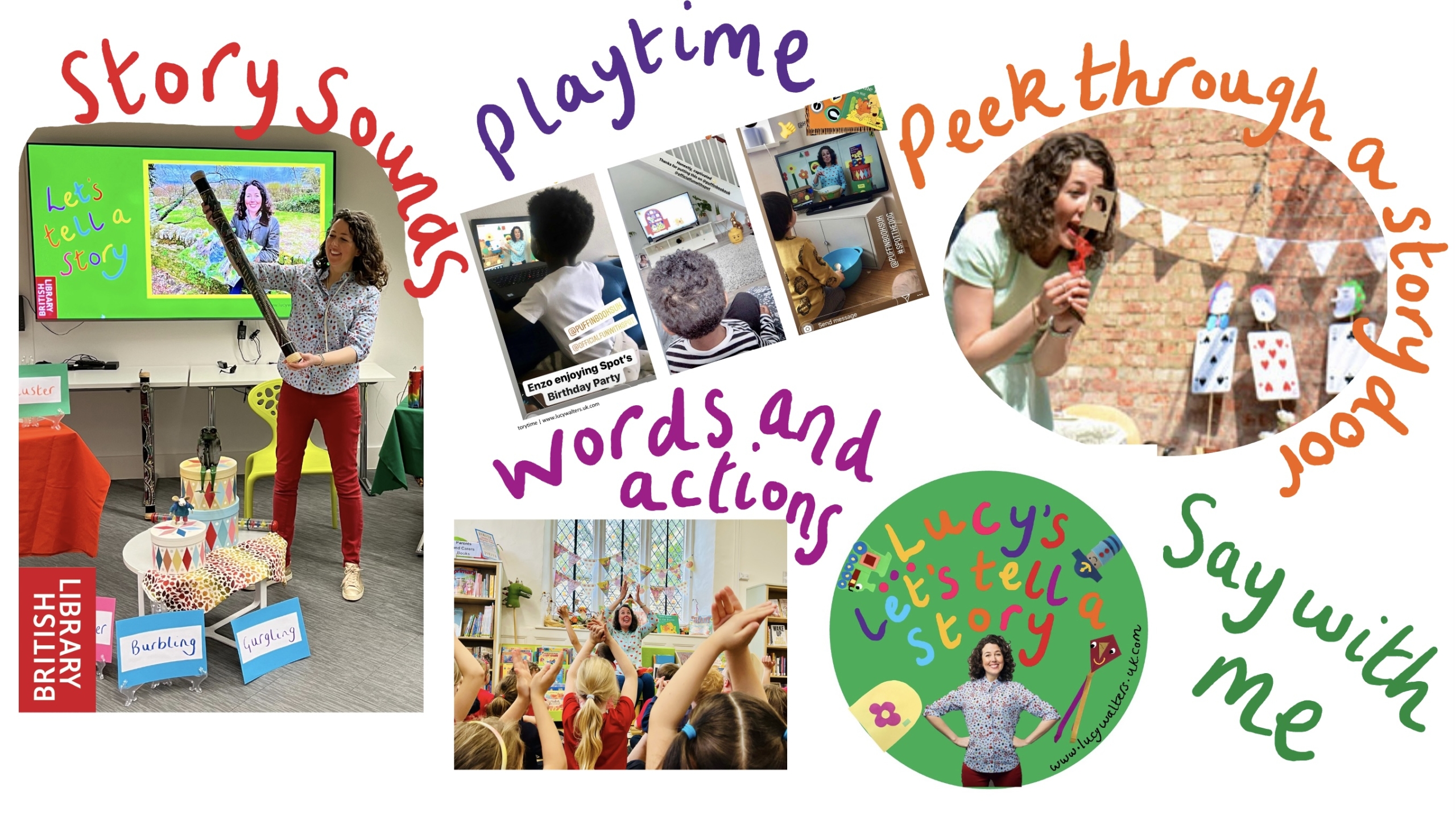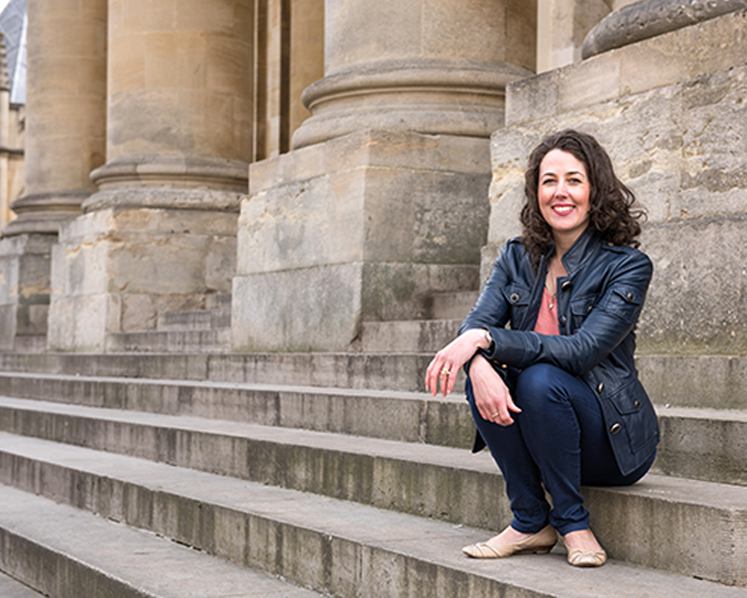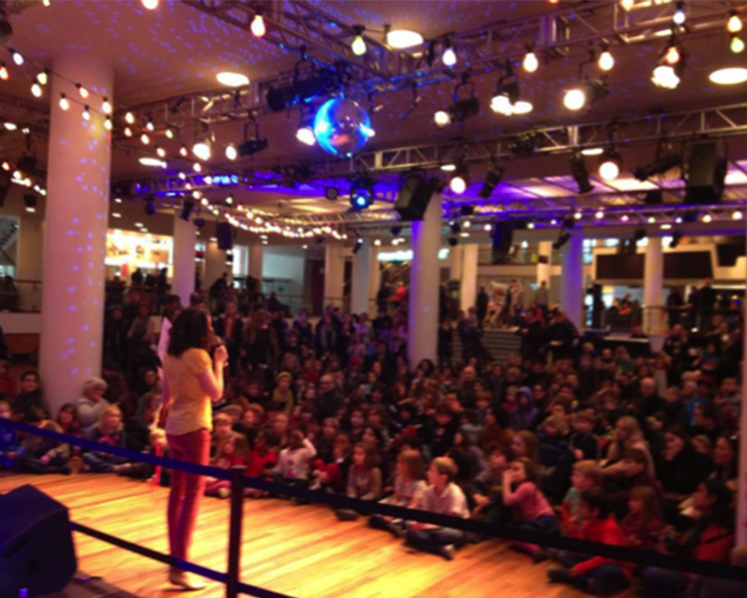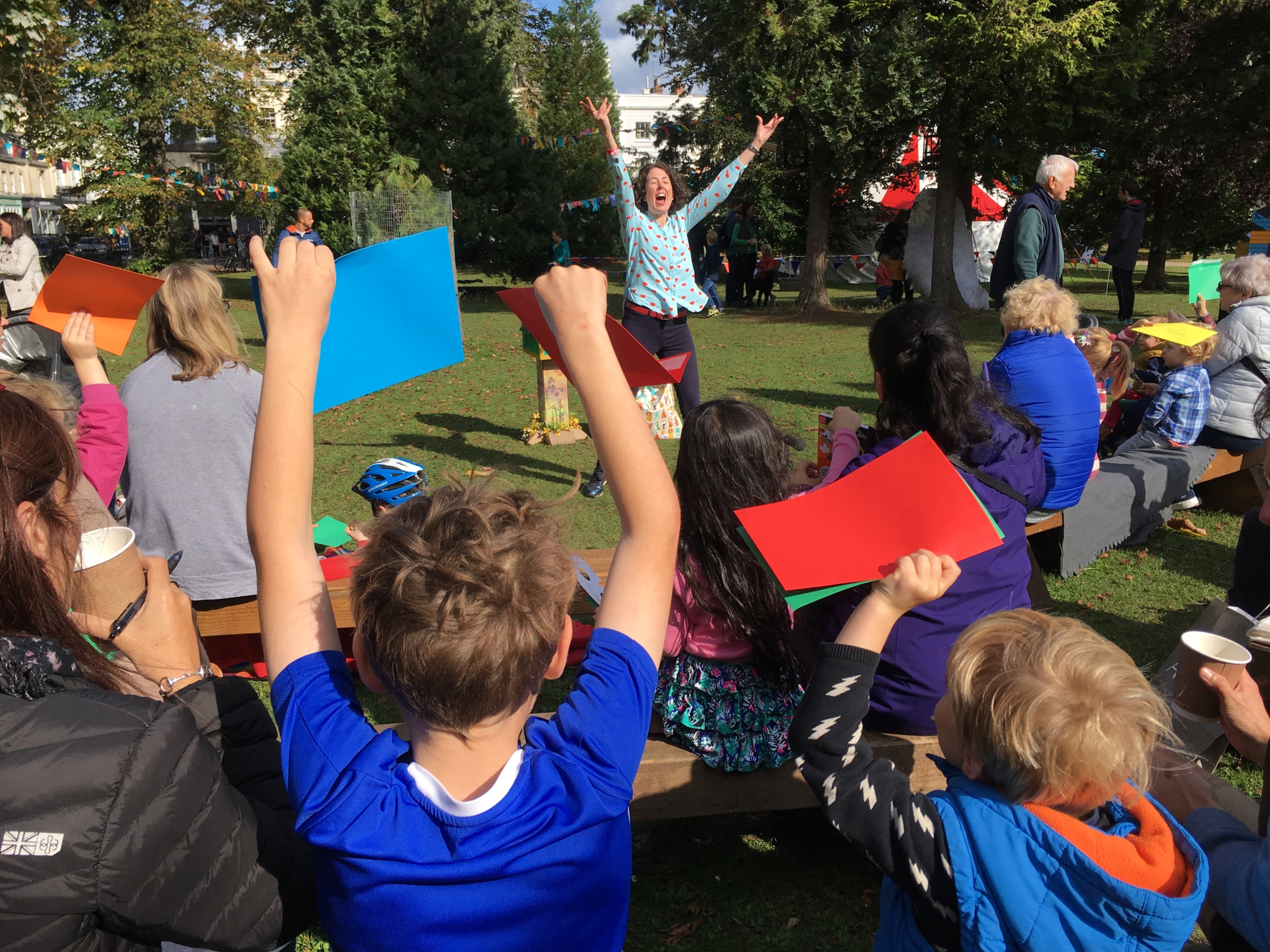“Wind your fishing rod and cast your line!” It’s a Saturday morning in March and I’m at the British Library with a room full of children fishing words and sounds from a stream. “Gurgling, burbling, babbling, rippling!” we all say together. As the words are spoken and our fishing rods playfully bob up and down, a sound is played – the sound of a stream I recorded a few weeks earlier.
Another Saturday morning, but this time I’m on my hands and knees crouched down with a microphone next to a fast-flowing stream. It has rained a lot so the sounds of the water splish-splash along. As is often the case, a dog-walker passes by and shoots me a confused glance; “I’m a children’s storyteller…,” I say, “collecting sounds… for a new show.” He politely nods and carries on.
My love of creating and telling playful stories is firmly rooted in the hours, days spent exploring outside as a child finding things to do, the stories I was read and told, and the children’s television programmes I loved to watch. Children’s television had a huge impact on me: the characters; the sets; the songs; how all this wonderful storytelling would spark ideas for creating my own stories, not to mention the clubs, badges, secret meetings, and all sorts of other ideas that would spin out of them. I recently sat down to watch an episode of Play School from 1979. And there it was. An episode on sounds! The brilliant Derek Griffiths pretending to play the xylophone after a masterclass from the percussionist, James Blades (at one point a homemade xylophone was used made of long sticks and short sticks). As the music rung out in the studio, Derek would listen and imagine the correct instrument to act out and play. The children encouraged to join in at home. The mixture of fun, games, song, and live presenters blending beautifully to create imaginative, sparky storytelling. Forty-five years later, at my live storytelling event, children are joyfully playing, saying, seeing, imagining stories acted out through sounds, words, and actions.
Playful storytelling is not just for entertainment, it’s a powerful tool for oracy at a time when 1.9 million1children currently struggle with talking and understanding words. By helping children to become effective speakers and listeners we help them to better understand themselves, each other, and the world around them, in turn, supporting education attainment, wellbeing, and social mobility. Live storytelling is wonderful; I love encouraging children to “join in with me” as we play with words and sounds, exploring rhythmical tones of language and voice. This approach combined with the broad reach of children’s media, combining clever animation with live action, has the potential to create wide reaching change, embedding the joy of language, words, and creativity.
I’m currently mid-way through a five-show theatre run of my new preschool storytelling show, Lucy’s Let’s Tell a Story, supporting language development, communication, and play; the show inspired, in part, by the charming, lyrical storytelling of Bagpuss, when “Once upon a time, not so long ago, Emily found a thing.” At the start of each show, I open my toy box to find simple objects sending us off on a story adventure. The show combines homemade props, animations from clipped together illustrations and playful songs to help the children see how a story can be told in many different forms. Through these many different forms we make, sing, play and say our way through a story. By the end, the parents and especially grandparents are fully into it too!
My aim with playful storytelling has always been to help children find their voice. I’m excited about how children’s media, woven richly in the fabric of our society, can work to inspire children’s oracy. The 1 in 5 children struggling with talking and understanding words is the highest number with speech and language challenges ever recorded2. Whatever form it may take, the twanking of the harp, the rustling reeds, the buzzing bees, and the booming of the big bass drum are needed now more than ever.
1Source: www.speechandlanguage.org.uk
2Source: www.speechandlanguage.org.uk
Playful Storytelling to Support Oracy is published in The Children’s Media Yearbook 2024. The Children’s Media Yearbook brings together the voices of media creators, researchers, regulators, policy makers and advocates for children and young people.





